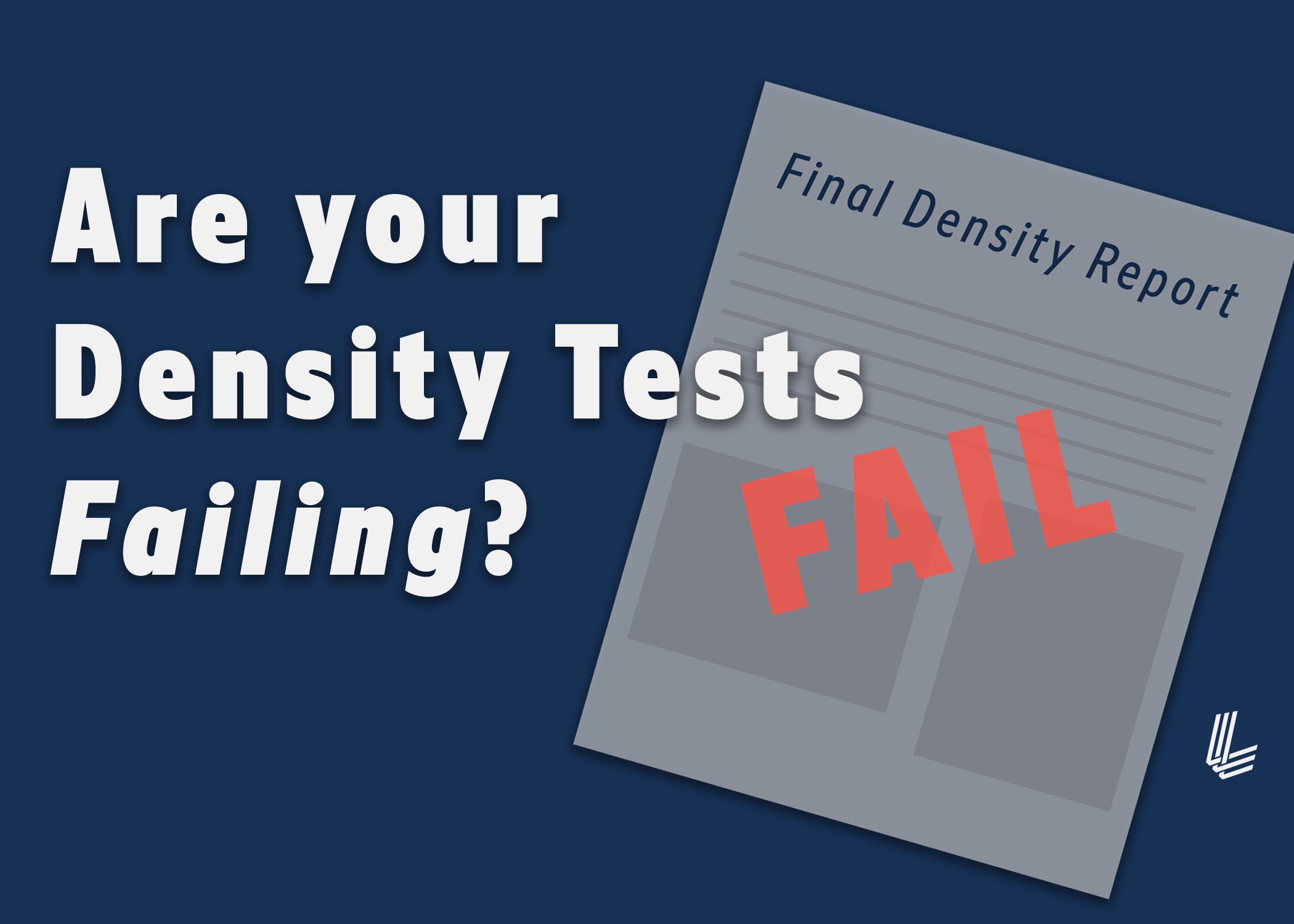Search for topics or resources
Enter your search below and hit enter or click the search icon.
Are you interested in Building Better with Legacy Engineering? We're Hiring!
November 10th, 2023 | 1 min. read

Compaction tests are conducted to assess the soil on site of your project by measuring it to a specified density or compaction level. Passing your compaction tests is important to be able to uphold your project’s schedule and ensure that your materials are up to standard. To name a few, successful compaction tests are essential for load-bearing capacity, overall safety, long-term structure performance, and compliance with building regulations.
From an invalid Proctor to a lack of moisture within your soil, there are a variety of reasons that your compaction test fails.

A compaction test is only as valid as its Proctor. It is crucial to collect an accurate sample to test. A representative sample is a sample that is collected as soon as materials are on site.
If compaction tests are consistently failing, you may want to consider reassessing the materials and adjusting existing compaction methods.
Compaction test failure means that you are unable to continue with your project thus delaying the entire building process. In order to avoid delays, it is important that you ensure your compaction tests pass. Staying on schedule is crucial so you are not risking possibly wasting your time and money.
Topics: